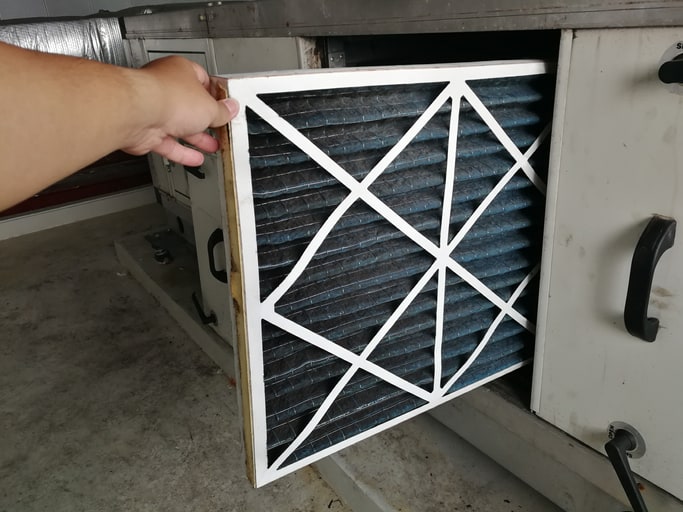
Getting the most value out of your home can be as easy as changing out your air filters. Homeowners that ignore the filters in their heating and air conditioning systems risk higher energy costs, damaging expensive equipment, and diminishing indoor air quality and personal health. See below to find out what can happen if you don’t change your air filters.
There are many particles floating in the air around us at the microscopic level: flakes of skin, pet dander, and the fumes and residue from cooking, to name just a few. And with the holidays around the corner, these particles increase with more activity and more time spent in your home.
Changing your air filters is one of the most important and overlooked basic home maintenance tasks. If you want to keep the air in your home clean and avoid unnecessary repairs, consider replacing your air filters every 30 to 90 days.
In our experience when talking to customers and other industry experts, here are the top harmful effects of not changing your air filters regularly:
You Spend Money on Energy Costs Without Seeing the Benefits
No matter the rate of airflow, your HVAC system is either running or not running. If the conditioned air sits around the coils, then you are heating or cooling the same air and not pushing it through into the ducts. Slow-moving air in the ducts will not stay the same temperature by the time it reaches each room.
With a dirty air filter, expect to increase the run-time of your HVAC system while only changing air temperature in small increments.
Your Air Conditioning System Runs Longer, Gets Clogged and Fails
Air conditioning repair can be big, complex, and very expensive. All of the air in your home, along with airborne particles, cycle through this single point multiple times in a single day. Similar to dust that settles on a flat surface, the spinning fan blade and air pressure in your HVAC system can force particles onto different surfaces, crevices, heating and cooling coils, and electrical and mechanical components.
The longer particles remain in the air, the more likely they will build up inside the unit, block air flow and cause damage.
HVAC components are engineered and manufactured with an expected lifespan of 15 years. The faster you can heat or cool your home, the less you have to run your HVAC system and the longer the equipment will last.
Indoor Air Quality Gets Worse
According to the EPA, indoor air quality is on average two to five times worse than the air outdoors. In some locations, air quality can be 100 times worse than the air outdoors. Much of this results from the energy crisis in the 1970s. To save energy, we improved our methods of construction and changed the materials we used to better seal buildings.
This is good news for energy costs but bad news for our respiratory systems, especially for allergy sufferers.
Sealed buildings that are using old filters allow poor quality air to recirculate indoors. We inhale these particles, and depending on your sensitivity, they can cause minor problems like watery eyes, coughing, sneezing, or trigger asthma-related symptoms and other long-term respiratory complications.
Changing out filters can have a profound impact on indoor air quality, energy costs and maximizing the value of your home. Consider that shopping for air filters online is not only convenient, but bulk purchase discounts and auto-renewal options can save you time and money.







